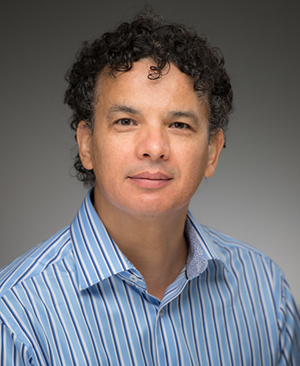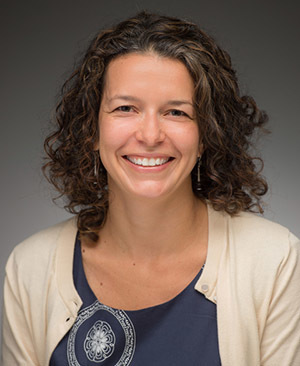They bring expertise in subjects that span physical borders and chronological boundaries. They bring passion to their research and energy to their classrooms.
And two of the six new faculty members joining Notre Dame’s Department of History this fall will bring their research and teaching into conversation with the Department of Africana Studies as affiliated faculty members.
Islam, Slavery, and Abolition
 Yacine DaddiAddoun
Yacine DaddiAddoun
Counting the languages Yacine DaddiAddoun knows takes more than one hand. He’s fluent in Arabic, French, and English, and can read or speak Portuguese, Spanish, and Italian.
The most unique one on the list, though, is the first one he learned—and the one that plays the biggest role in his research. DaddiAddoun’s native tongue is Tumzabt, a dialect of Berber spoken in his home nation of Algeria.
DaddiAddoun’s scholarship focuses largely on the abolition of slavery in Algeria (he is currently completing a book on the topic), as well as slavery throughout other Islamic nations and the history of Islam in Africa.
He joins the department of History as an assistant professor after three years at the University of Kansas. He is teaching a history survey course on Islam in Africa and an upper-level course, Slavery in the Lands of Islam.
“The opportunities Notre Dame has for faculty, in terms of research, in terms of facilities, in terms of resources, is remarkable,” he said. “This is a tremendous opportunity to advance my research.”
What Slave Traders Left Behind
 Mariana Candido
Mariana Candido
Mariana Candido studies the impact of the transatlantic slave trade on African society—but she isn’t focused on the people who were taken away. She’s interested in the ones who stayed.
Candido’s research centers on how the people of west-central Africa coped with quickly losing so many people to slavers, and what impact the population decline had on marriage and political and social organizations.
Lately, her scholarship has centered on how 19th-century women in Angola and elsewhere on Africa’s Atlantic coast were able to acquire land and other property. Notre Dame will provide significant support for her continued research in Angola, and being affiliated with a Catholic institution will help her gain additional access to archives in that country, which has deep ties to the Catholic Church.
Coming from the University of Kansas, Candido said she was excited to see how much interest there is on campus in studying slavery as part of the fight to end modern human trafficking.
“The sense of social justice and social concerns has been important for me, finding dialogue with faculty here,” said Candido, an associate professor. “It has been a very good surprise. The vibrant group of students who are interested in this issue has been very stimulating.”
Excerpted from a story originally published by at al.nd.edu on October 23, 2015.